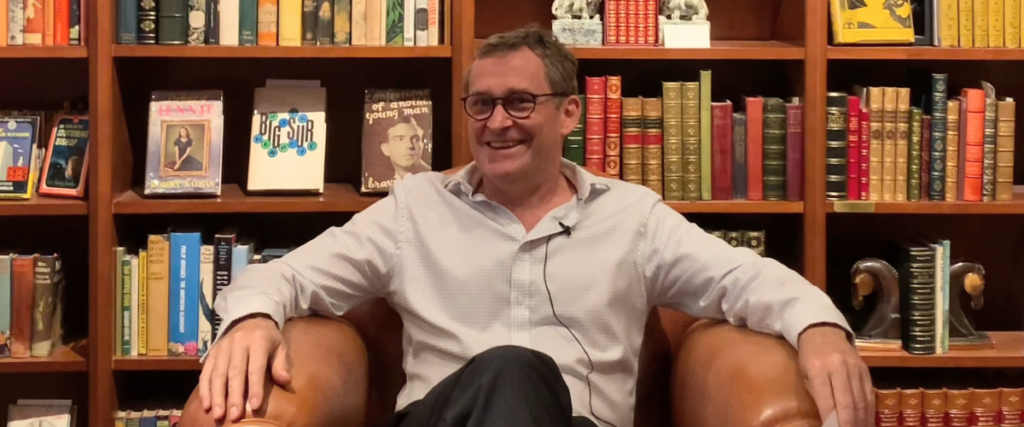Filled with the smell of history and literary heritage, Lok Man Rare Books offers the finest collection of antiquarian books to its clients. Having been involved in the rare books business for 15 years, Lorence Johnston shares his rich experiences in this unique industry and other fields.
Moving from finance to book dealership, Lorence Johnston is the founder and owner of Lok Man Rare Books, a Hong Kong-based bookstore featuring antiquarian books in various genres. He has been running the business for 15 years, trading books of great literary or historical value, including a collection of Winston Churchill’s War Speeches, the first edition of A Streetcar Named Desire by Tennessee Williams, and the first edition of Walt Whitman’s first collection of poetry Leaves of Grass.
Drawing from his involvement in various professional industries and his ongoing, unique experiences, Lorence Johnston speaks to Hive Life about his bookstore, the world of rare book trading, and shares insightful advice.

Can you tell us more about Lok Man Rare Books?
We’ve been here for 15 years. We have the finest selection of rare and antiquarian, high-value books in Asia. All the major cities, including London, Paris, and New York, have rare book dealers. Hong Kong doesn’t have any; there’s nowhere in Asia that does what we do outside of Australia.
We offer books published from the 1500s up until quite recently. If they are literature from over the last hundred years, they are usually first editions of authors like Hemingway or Steinbeck.
For example, if you came in and said ‘I want the first printed English translation of Sophocles.’ Then I would source it, come back to you and say ‘this is roughly how much you’re going to need to budget,’ and tell you a bit about the scarcity and the history of the publishing. That budget can stretch from HK$3,000 up to $3 million depending on the book.

How did you start such a unique business?
I had been working as a corporate consultant, and the last few projects I’d done were related to the luxury goods business. In the luxury goods sector, there were hardly any places that actually knew what they were selling, able to explain and have a passion or a professional knowledge.
After identifying that there was nobody doing this here, I looked more into the industry, and then got passionate about it. It’s an incredible industry – it’s very complex and there are no business case studies about it. It requires a lot of old-fashioned work, building up knowledge in an area and trust through human interaction.
Who are your regular clientele?
The majority of our customers are based in Hong Kong. They may have been educated overseas, have an international outlook, and deal in international business; if you’re going to spend money on things that cost a few thousand dollars up to thirty thousand, you would need some allowance.
You can also split them into collectors and gift buyers. Sometimes there’s a crossover where collectors also buy books as gifts. But if they’re buying for themselves, they’ll generally be collectors, and a small number of collectors come from overseas.
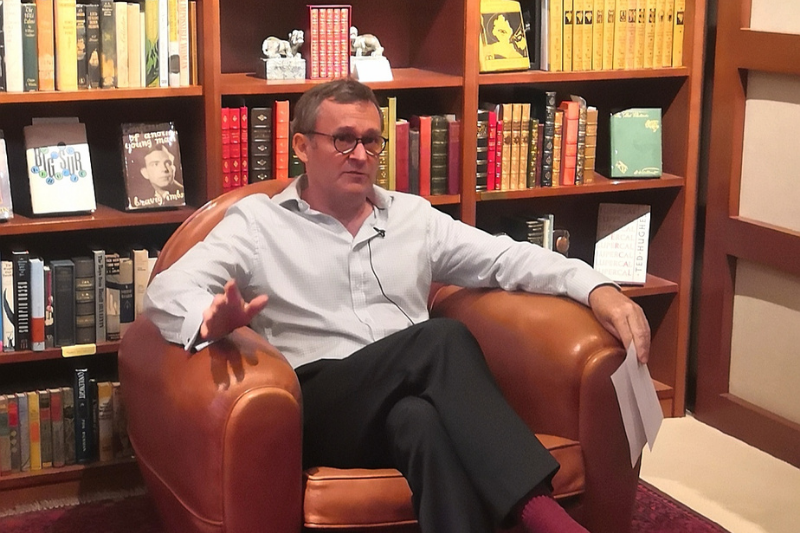
You’ve worked in different industries before jumping into this business. Can you share more about that transition in your career?
One of the good things is that I’ve been involved with businesses from the beginning before. So there were certain things I could just get on with, including the back office work, business registration, the accounting and finance side.
I got a bit frustrated because this business requires a unique database, customer system. If you are selling something you can reorder, there is software for it. But I can’t use that, and so I got sidetracked and I programmed our database and customer relationship management software.
The real challenge was learning the trading business. This is not a retail business, it’s quite old fashioned. Each one of these books is a trade. I have had to source the books, find them, and work out what price I have to pay for them in order for me to make a margin. In this business, you have to trade every time. Once a person sells a book to you, they’re not going to have another one. Sometimes it takes six or seven years to do the right trade to get the right book for someone.
You have to build up a whole network of people around the world and start asking to join professional bodies – one took seven years of peer review for me to be allowed to join it. Once you are a member, then you are viewed at a different level by other people in the business. And there are some amazing people, that is the nice side of trading instead of just dealing with one or two suppliers, where it is quite hard to get it onto a family level. But in this business, it becomes very personal.
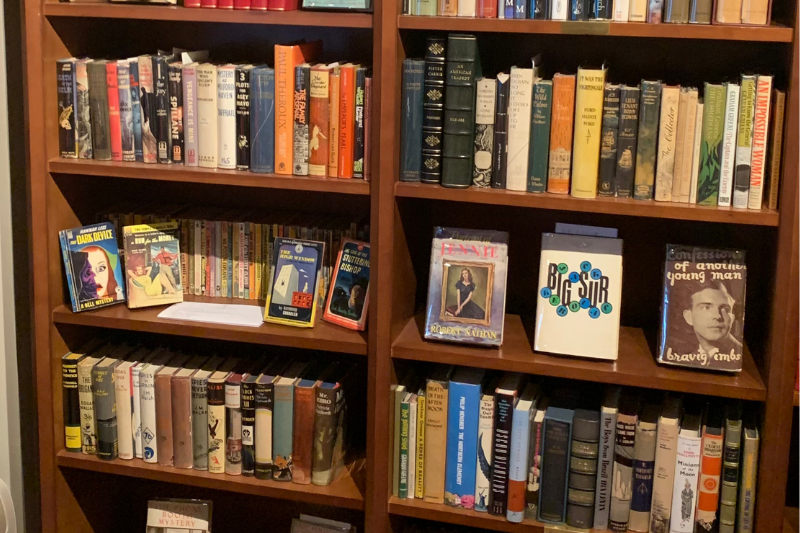
Many, especially young people, are looking for something more analog, for example collecting LP records, in this digital era. Do you have any thoughts on this social phenomenon?
Books have graphics. So there’s a touch and feel aspect about it. Unfortunately, unlike vinyl, there is a higher price point unless you are going to collect something special like one of the first 200 pressings of the Beatles.
But you can start with books, as long as you buy things that are really important to you. I like the idea of trends circling and coming back.
Imagine if you go to somebody’s house and there are five or six books on the shelf. You would look at them and start going through them. They will reveal something about the owners. This creates conversations – the physical part of books, just as with vinyls, creates them. It leads to communication of an analog kind. I think there is a romantic part about it.
Many industries have struggled or needed to shift online due to the ongoing pandemic, how has this affected your business?
Making people go online and doing it properly are a great thing. We don’t do it properly. We have still fallen behind.
People are not able to come here anymore so we just drop off products. The downside of this is that people have got so much more used to being online that they expect everything to happen with a press of a button. When it doesn’t, they move on very quickly.
Our business has been badly affected by the pandemic. We do have people who used to come in from overseas for business meetings, conferences but they won’t buy from us, even if I know what books they love and we’ll ship them, unless they are here. They would normally come here for a couple of hours, we talk, then they select and buy.
Moreover, like I said before, we are traders. Without being able to travel to trade fairs and conferences, without being able to meet everybody else, you don’t have your finger on the pulse of the trade. Zoom doesn’t do it. The trust part of this business – dinners, lunches – has been gone now for three years. Without that, it is becoming much harder.
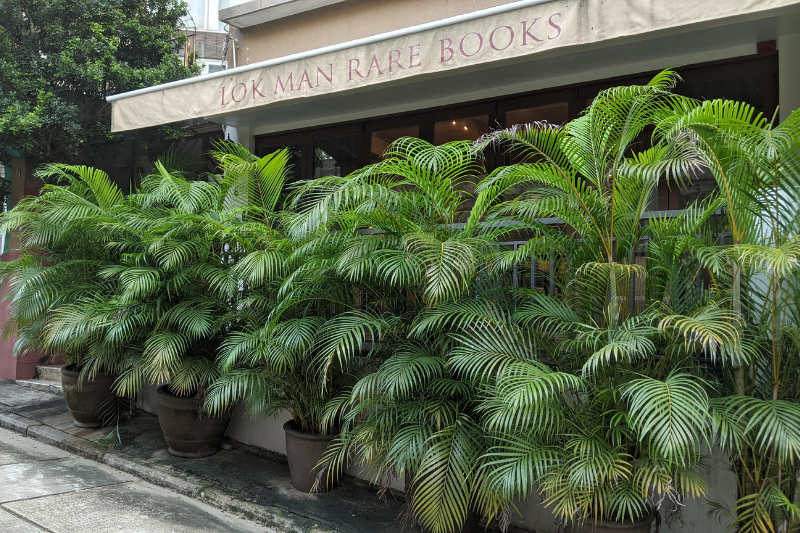
Do you have any advice to share with those looking to start a new business?
Don’t go into an MBA. I think if you applied all the lessons you learned during your MBA, you would never start anything; If you know all the risks, you’ll never start.
Find things that excite you about the business. If you are going to do a thesis or doctorate, you find a topic that is really amazing because otherwise you are going to get so fed up with it halfway through or at the end that you never want to do it again.
Do your numbers. Anyone whose business fails after a year and gives the excuse: ‘Well, the rents were too high’, is [not business savvy]. The rents are going to be high, full stop.
Differentiate yourself. Look at the number of F&Bs that open and close every month. Don’t just do the same thing as everybody else, do something different.
Another thing about being an entrepreneur? Travel. Wherever you have read up that your business ideas are good, go and see them. You will come back with a much bigger perspective. And usually these businesses are quite helpful to get to know. Just staying here and starting it up is a huge mistake.

Antiquities, including rare books, have great historical value that cannot simply be measured in terms of financial price. Would you consider yourself as someone that contributes to the scholarly field of history, in this sense?
Every now and then we handle something here, which is fabulous and significant that has changed so many people. We had the world’s first atlas from the 1500s- an Ortelius atlas- which is just the most beautiful thing. To be able to handle that for a while, research it and learn about it, and then to hand it over to somebody who clearly is in love with it as well, is pretty neat.
We have the Shakespeare Folio, the first edition of Adam Smith’s Wealth of Nations, Gray’s Anatomy, Florence Nightingale’s work on nursing- books that have changed the way people view the world and changed the world. When you handle things like that, it does make this business very special.
We have sold a lot of books. They live in people’s homes in Hong Kong. Hopefully, they are adding value to those people with passion. If we hadn’t been here, those books would never be here. So the history is being brought here and being kept here.
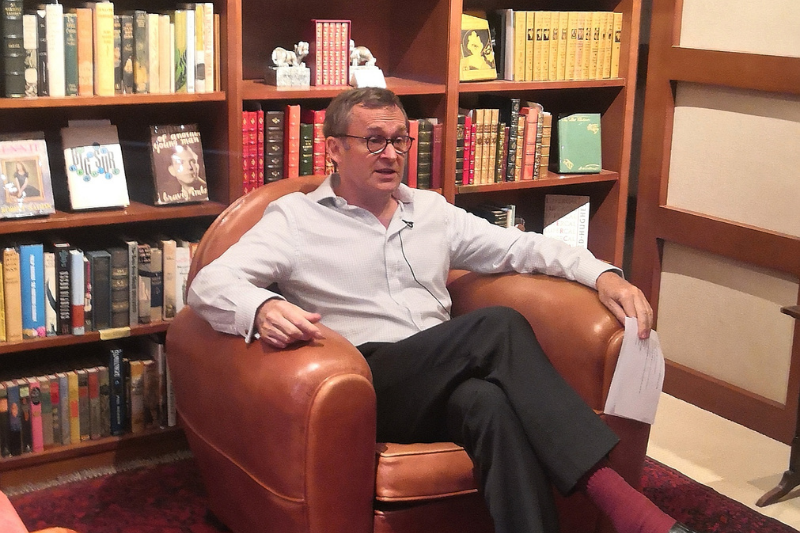
Which book from your collection holds the greatest historical value at the moment?
History is personal. We just sold the world’s first book about cocktails from the late 1800s by the great professor Jerry Thomas.
I have a collection of books at the moment that will be sold as a collection about the use and trading of wine, and how wine has changed over the years, starting in the 1500s working through to the late 1800s. I have been building that up for over 10 years. So that to me, in its entirety, is probably the most important thing we have here historically, for the moment.
Do you have a favourite bookstore in Hong Kong?
Flow– the name refers to the Buddihist principle of the flow of knowledge. It is packed with books and it is always changing. If you are a student and you like to read or if you don’t have many pennies, there is always stuff. It is not a business that makes any money at all as the bookstore works on charity.
Another one is reBooked. They sell second-hand children’s books. The place started off with this girl who couldn’t find the right books to read. So she started getting books second-hand and selling them online. Later on some mothers and other people got involved, and now they have a physical bookstore.
Generally in Hong Kong, it is hard for bookstores to have the right business model with high rents because of luxury retail here. People come to Hong Kong and ask, ‘Where are all the bookstores?” Well, if you go out to the middle of nowhere, you might find them. But to be a bookstore, you need to be where everybody is.

Lok Man Rare Books is also currently hiring- consider applying if you are interested in developing a new skill and learning more about the world of rare books.
Related Articles
The Best Indie Bookstores in Hong Kong
